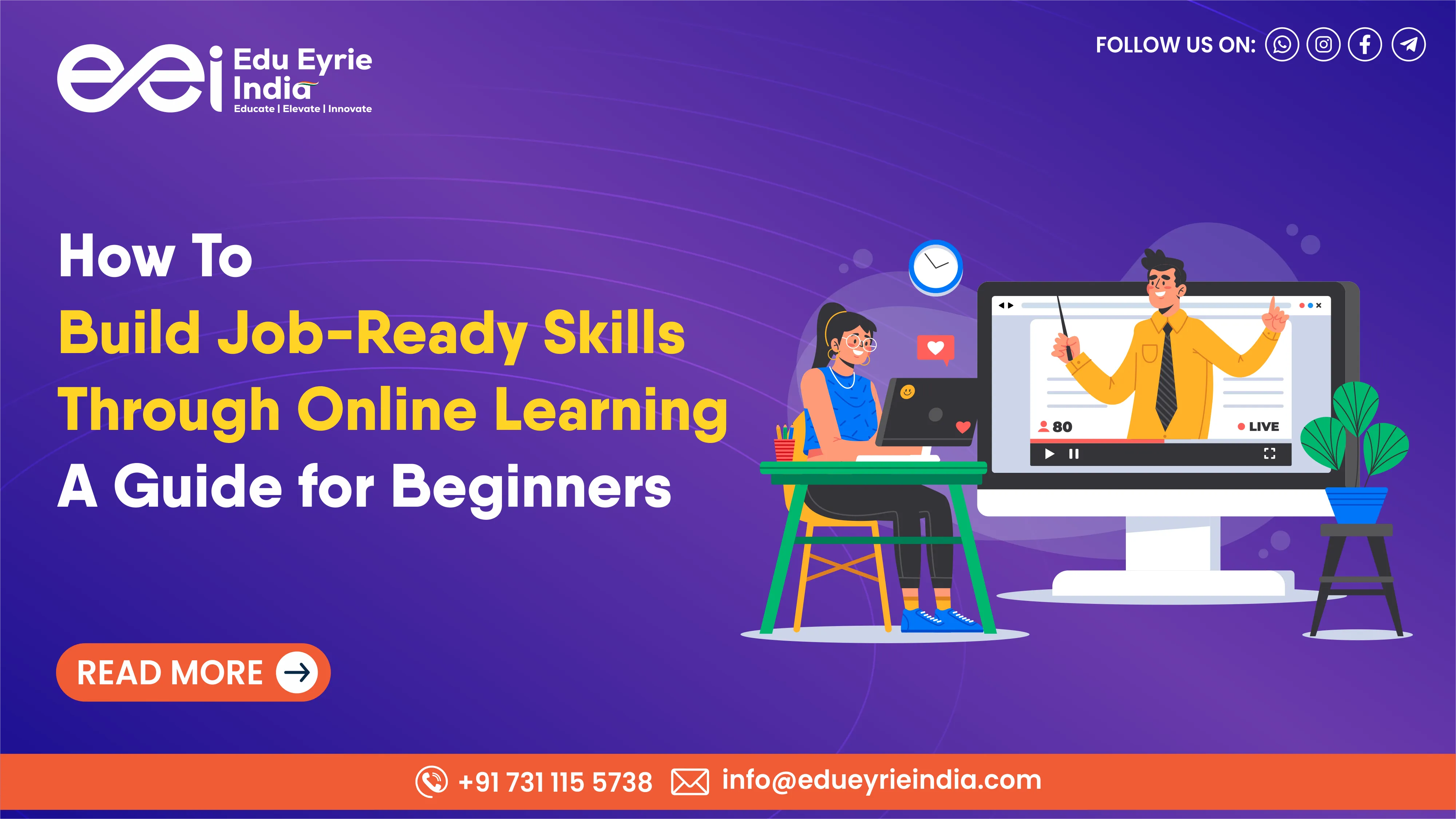In today's digital world, gaining job-ready skills has never been easier, thanks to the abundance of online learning platforms. For beginners, these resources are invaluable, offering flexibility, affordability, and a wide range of courses. However, with so many options available, it’s essential to know where to start and how to navigate the learning process effectively. In this guide, we’ll explore the steps to building job-ready skills through online learning, tailored especially for beginners.
1. Identify Your Career Goals
- Before diving into any course, take time to clarify what you want to achieve. Are you looking to switch careers, advance in your current role, or acquire specific technical skills? Identifying your career goals will help you focus on the skills that matter most for your objectives. For example, if you’re interested in a tech career, courses in programming, data analytics, or cybersecurity might be a priority. For creative roles, graphic design, digital marketing, or content writing skills could be more relevant.
Tip: Write down your goals and the skills you think you’ll need. This list will serve as a reference point as you explore courses.
2. Choose the Right Platform
There are numerous online learning platforms, each catering to different needs and learning styles. Here are some popular ones:
● Edu Eyrie India
3. Start With Foundational Skills
- As a beginner, start with foundational skills in your chosen field. Foundational courses give you a solid base, introduce essential concepts, and prepare you for more advanced topics. For example, if you’re interested in data science, start with courses in basic statistics or Python programming before moving on to machine learning.
Some useful foundational courses that apply across many fields include:
● Basic Computer Skills:
● Microsoft Excel or Google Sheets:
● Communication Skills
4. Build Practical Experience Through Projects
- Theoretical knowledge is important, but hands-on experience is what truly makes you job-ready. Look for courses that include projects, case studies, or practical exercises. Completing real-world projects allows you to apply what you’ve learned, solidify your skills, and build a portfolio that showcases your abilities to potential employers.
5. Join Online Communities and Forums
- Online learning can sometimes feel isolating, so joining communities related to your field can be incredibly beneficial. Many platforms have discussion forums, and websites like Reddit, Stack Overflow, and LinkedIn have groups where learners and professionals share resources, insights, and support. Networking in these communities can also open up opportunities for internships, collaborations, and job referrals.
6. Track Your Progress and Stay Consistent
- One of the biggest challenges in online learning is staying consistent. To overcome this, set a study schedule and stick to it. Break down courses into manageable chunks and reward yourself for hitting milestones. Many platforms also offer progress-tracking tools that help you stay motivated.
- Another helpful tactic is to create a portfolio or resume section for each skill you acquire. This can help you visualize your growth and show employers your ongoing commitment to skill development.
7. Consider Certifications
- Once you’ve completed a course or gained substantial experience, consider obtaining certifications. Certifications serve as proof of your skills, especially in technical fields like IT, data science, and project management. Some certifications, such as Google Analytics, Microsoft Certified Professional, or PMP, are recognized across industries and can boost your resume.
8. Prepare for Real-Life Application
- The final step is to practice applying your skills in real-life scenarios. This could involve taking on freelance projects, internships, or volunteer work. If these options aren’t available, you can simulate scenarios yourself or find industry-specific case studies. Practicing your skills in real-world contexts helps bridge the gap between learning and doing, making you truly job-ready.
Wrapping Up
- Building job-ready skills through online learning is a rewarding journey, especially for beginners. By setting clear goals, choosing the right courses, and staying consistent, you can develop practical skills that open doors to new opportunities. Remember, the key is to start small, stay focused, and keep building on each milestone. With dedication and the right resources, online learning can transform your career prospects and prepare you for success in any industry.

